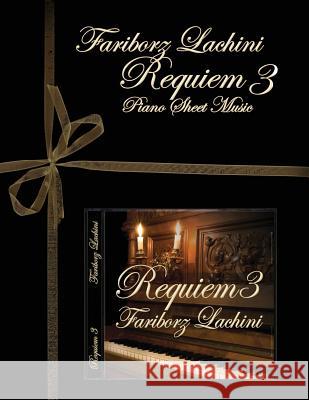Requiem 3: Piano Sheet Music » książka
Requiem 3: Piano Sheet Music
ISBN-13: 9781470147174 / Angielski / Miękka / 2011 / 42 str.
Fariborz Lachini's third Requiem for solo piano is immediately calming. Its ethereal nature provides an escape from our tempestuous and cluttered world. While his thoughtfully constructed melodies pay homage to the well crafted classical line, it is the purity of his music that connects with the casual listener and satisfies the most discriminating musical tastes. Lachini's widely accessible music blurs the strict lines of any one genre. There is no need to defined or categorized his music because it is simply, Beautiful. Lachini's solo piano music possesses a tenderness that resonates with music lovers despite any cultural differences. The unifying force of music is clearly at work in Lachini's entire catalog. Lachini believes in the emotional power of simplicity. His music is subtle, suspenseful and full of longing - a rare and rich find in today's music. Lachini's compositions are timeless. His source of inspiration for many of his works came from a war-torn world. His first two Golden Autumn albums were released immediately after of the Iraq-Iran war and reflected the unrest of the era - the soothing melodies were the refuge of many people at that time. As a result, the first Golden Autumn recording ("Paeez Talaee") was a resounding success and Lachini became a household name in Iran. During the next two decades, Lachini created scores for nearly one hundred movies. The melodies of some of the movies can be heard in his follow-up Golden Autumn albums. Elements of his beautifully crafted movie scores and Golden Autumn releases are evident in his Requiems. Yet what sets these Requiems apart from his other works is his use of a classical foundation for the three recordings in the series.
Zawartość książki może nie spełniać oczekiwań – reklamacje nie obejmują treści, która mogła nie być redakcyjnie ani merytorycznie opracowana.











